Ouch! You’re shopping, and suddenly you slip and fall. What happens when you are injured in a store? It’s more common than you think. In fact, over a million people visit the ER each year due to store accidents.
This guide will walk you through six key steps to take after a store injury. Ready? Let’s go!
Key Takeaways
Over 1 million people visit the ER yearly due to store accidents. Take quick action after an injury to protect your health and legal rights.
Notify store management right away and file an incident report. Gather evidence like photos, witness statements, and security footage to support your case.
Consult a personal injury lawyer for guidance. Many offer free initial consultations and work on a “no win, no fee” basis.
Don’t say you’re uninjured or discuss the incident with insurance adjusters. Let your lawyer handle communications to protect your claim.
Act fast – most states have a 2-3 year statute of limitations for filing personal injury claims after a store accident.
Table of Contents
Immediate Steps Following a Store Injury

Ouch! You’ve just taken a tumble in a store. Now what? Quick action can make a big difference. Your next steps could shape how things play out.
Assess the Nature of Your Injuries
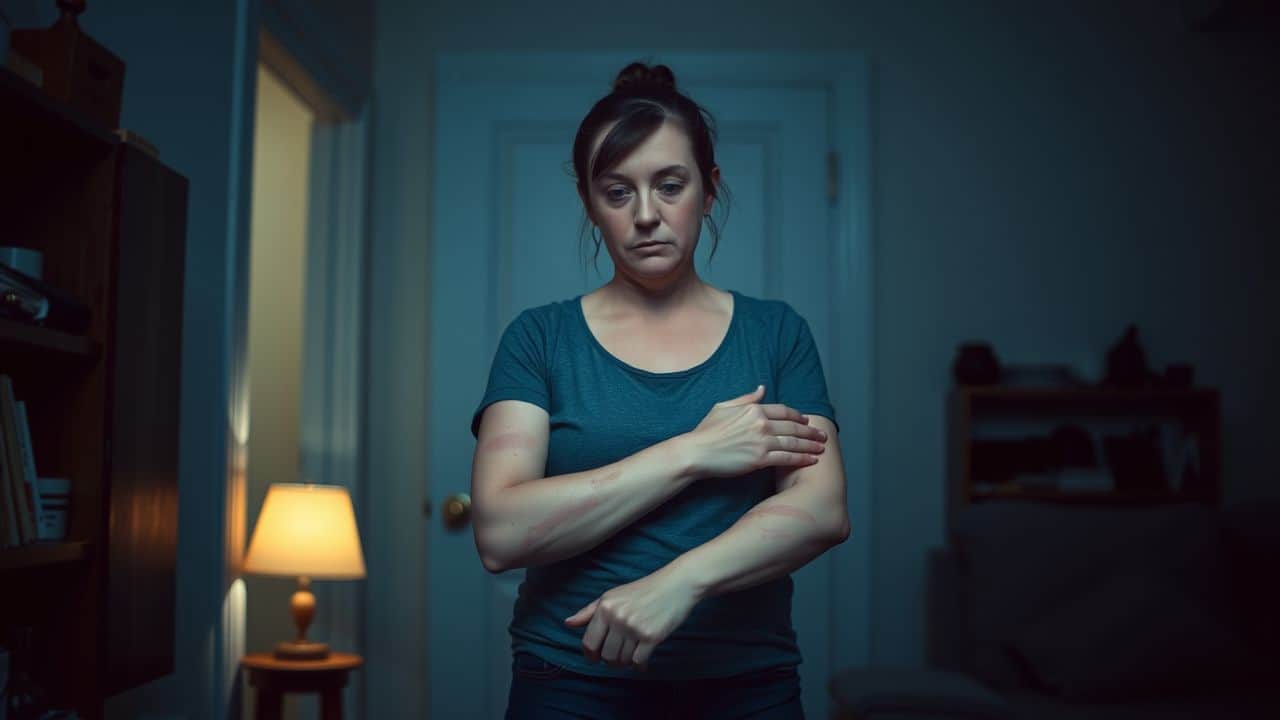
After a store mishap, check yourself out. Look for cuts, bruises, or any pain. Don’t brush off small hurts. They might get worse later. Even minor aches need a doctor’s look. Your health comes first.
Proper care now can stop bigger problems down the road.
Keeping track of your injuries is key. Write down how you feel right after the accident. Note any changes in the next few days. This info helps doctors treat you right. It also backs up your case if you need to file a claim.
According to Dollinsky Law Group Nashville, good records can make a big difference in personal injury cases.
Your health is wealth. Don’t gamble with it after a store accident.
Notify Store Management of the Incident

Once you’ve checked your injuries, it’s time to tell the store staff. Find a manager or supervisor right away. Don’t wait! Quick action helps your case. Tell them exactly what happened and where.
Be clear and honest about your injuries.
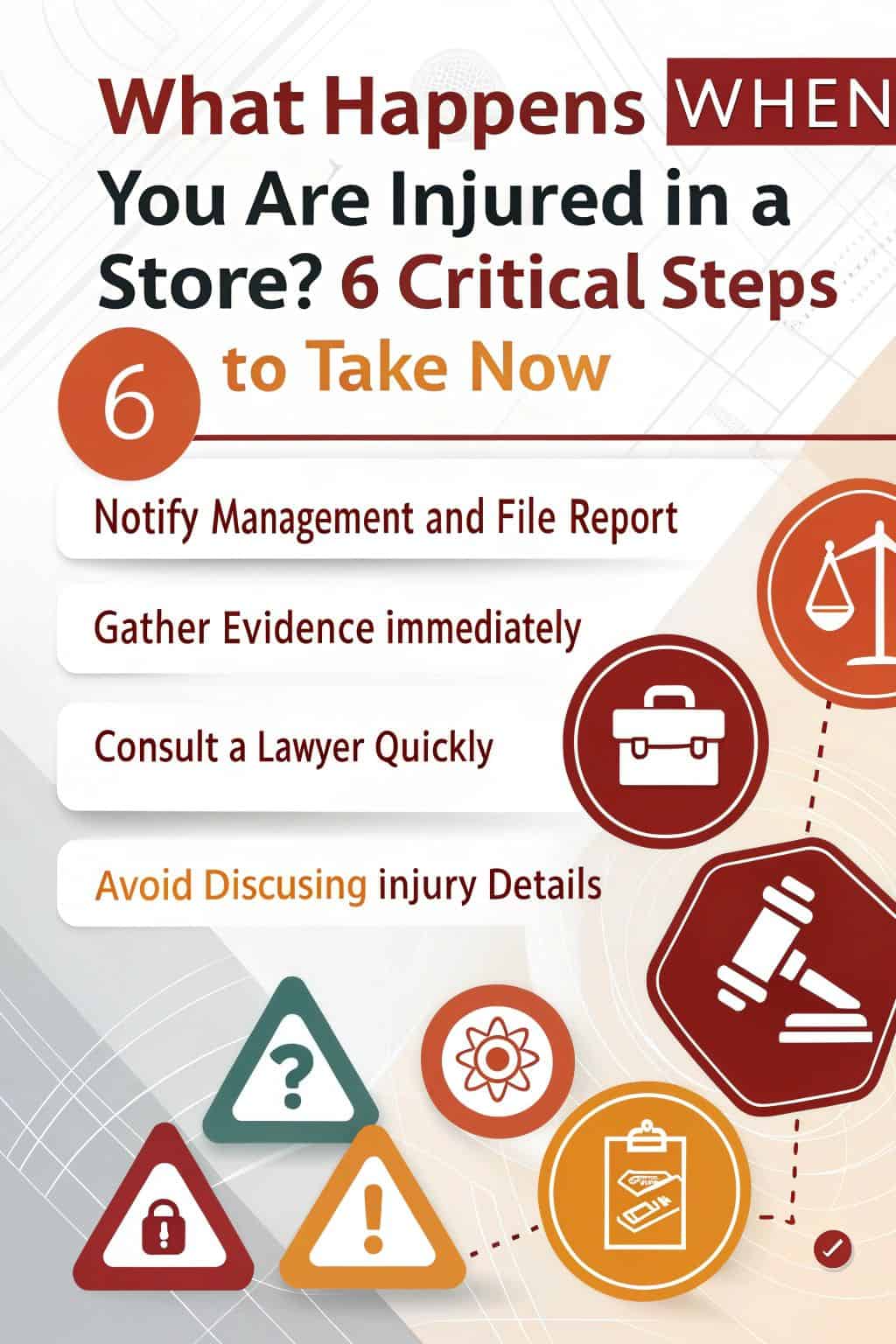
Ask the manager to file an incident report. This paper trail is key. Get a copy for your records. Jot down the names of anyone you talk to. Ask about their next steps. Will they review security footage? Fix the hazard? Stay calm but firm.
Your health and rights matter most here.
Collect Evidence and Statements from Witnesses

After an injury in a store, you need to act fast. Gathering proof and talking to people who saw what happened is key.
- Take photos of the accident spot. Snap pictures of any hazards, like wet floors or loose items.
- Record video if possible. Use your phone to film the area and any unsafe conditions.
- Get contact info from witnesses. Ask for names and phone numbers of shoppers or staff who saw the incident.
- Write down what happened right away. Note the time, date, and exact location in the store.
- Ask for security camera footage. Request that the store save any video of the accident.
- Keep your clothes and shoes as evidence. Don’t wash them if they show signs of the accident.
- Document your injuries. Take photos of cuts, bruises, or other visible harm.
- Collect store staff details. Get names and job titles of workers who helped after the incident.
- Save all receipts and papers. Keep any documents the store gives you about the accident.
- Look for past problems. Ask if similar accidents have happened before in that spot.
Legal Basis for Store Liability
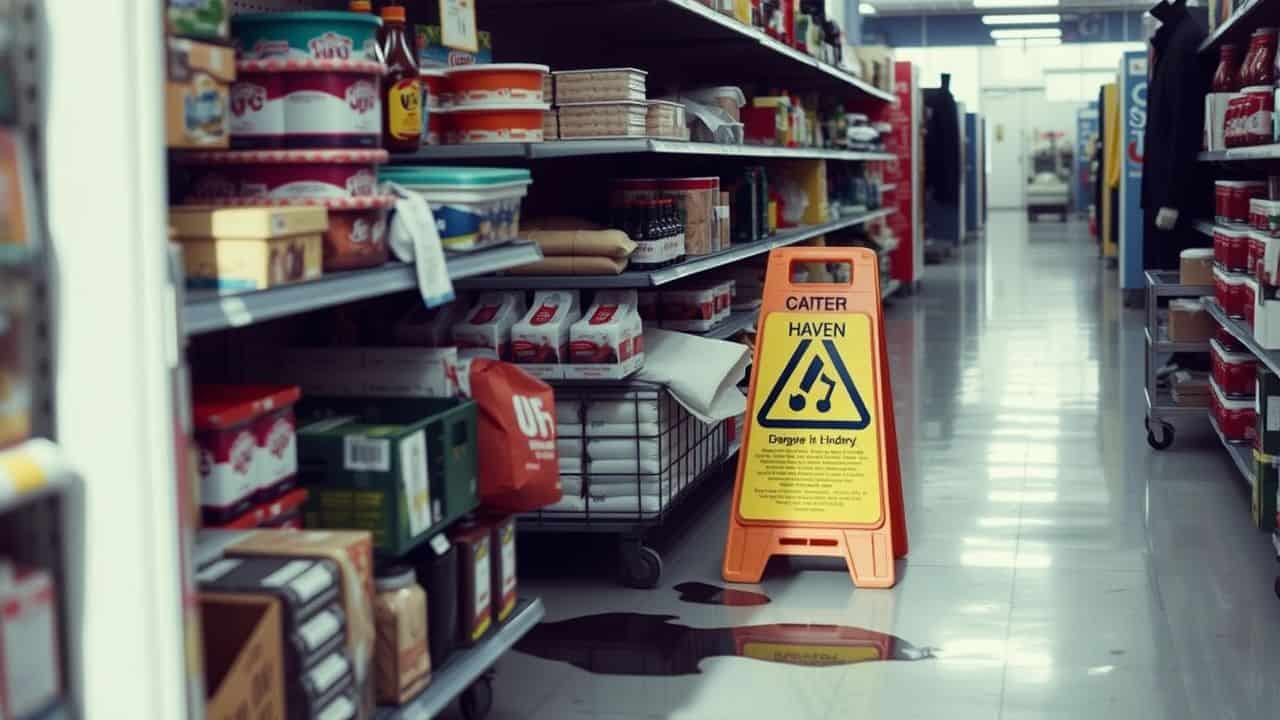
Stores must keep customers safe. If they don’t, they can be held responsible for injuries.
Typical Causes of Injuries in Retail Stores

Retail stores can be danger zones if you’re not careful. Slips on wet floors without warning signs top the list of common accidents. Tripping over debris in aisles or falling merchandise from shelves also cause many injuries.
Broken handrails on stairs or faulty escalators pose serious risks too.
Bad weather brings its own set of hazards. Icy walkways or poorly maintained entrances lead to nasty falls. Inside, spills left uncleaned or items blocking paths spell trouble. Keep your eyes peeled and watch your step to avoid these common store pitfalls.
Safety isn’t expensive, it’s priceless.
Evaluate Store’s Responsibility for the Accident
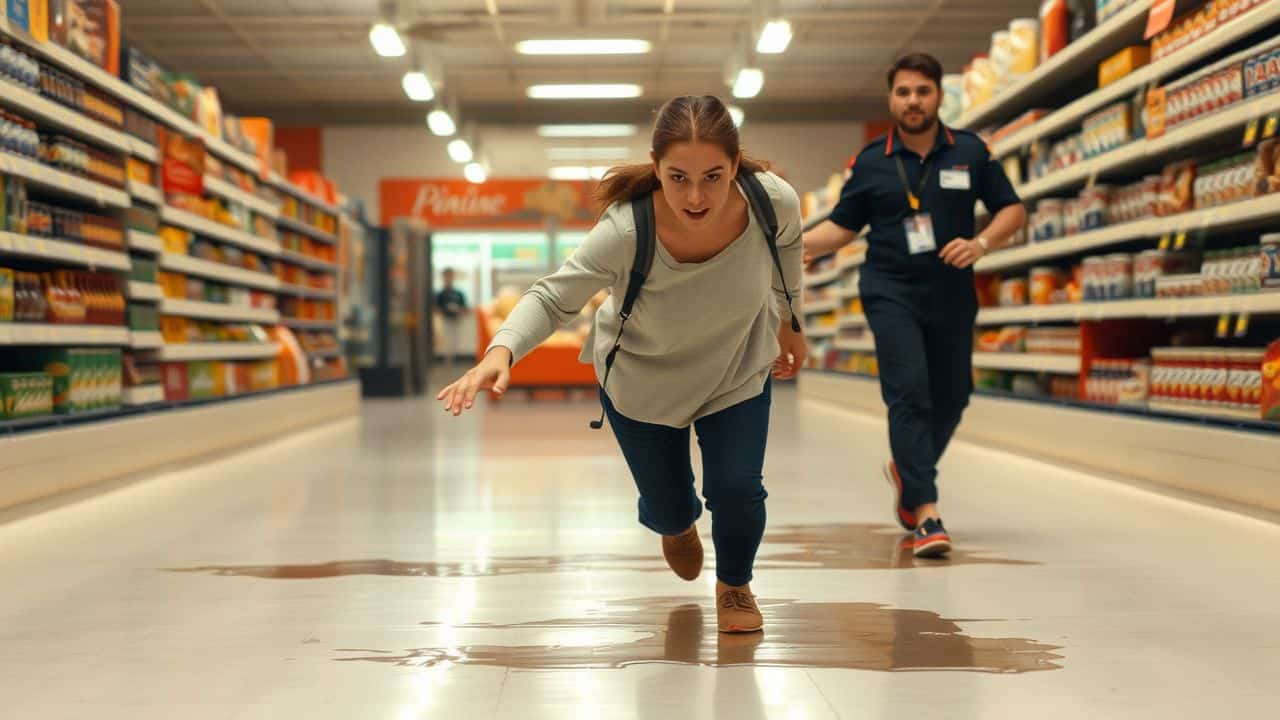
Stores must maintain safe spaces for shoppers. It’s the law. In New York and Florida, shop owners are required to address hazards promptly. If they fail to do so, they may be liable for your injuries.
Consider a scenario where you slip on a wet floor without a warning sign. The store might be responsible. However, the situation isn’t always straightforward. You need to demonstrate that the store was aware of the hazard and failed to act.
This can be challenging.
I once experienced a slip in a grocery store. The manager claimed ignorance of the spill. However, an employee admitted to noticing it earlier. That information was crucial. It demonstrated the store’s negligence.
In Florida, you may still receive compensation even if you’re partially responsible. As long as you’re not more than 50% at fault, you have a chance at compensation. Keep in mind that each case is unique.
The specific details are significant.
Legal Actions to Take After a Store Injury

After a store injury, you need to act fast. Smart moves now can help you later if you need to go to court.
Complete an Accident Report
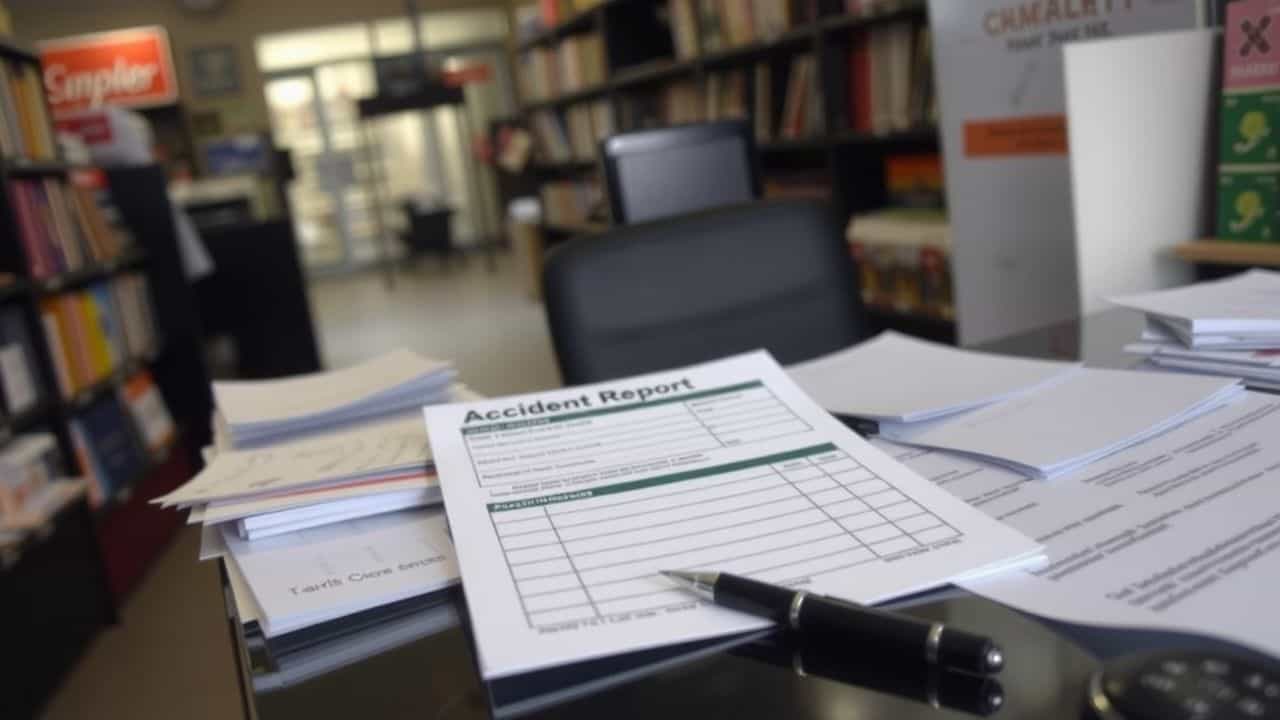
Filing an accident report is crucial after a store injury. Don’t skip this step! Ask the store manager for an official form. Fill it out with care. Include every detail about what happened.
Note the time, place, and how you got hurt. Describe any unsafe conditions you saw. List names and contact info of witnesses. Request a copy of the report for your records.
Be honest but careful with your words. Stick to the facts. Don’t say you’re “fine” if you’re not sure. Pain can show up later. Let the doctor decide how badly you’re hurt. Follow up with the store in a few days.
Make sure they filed the report. This paper trail matters if you need to take legal action. Now, let’s talk about why you might want to chat with a lawyer.
Consult a Personal Injury Lawyer

After filing an accident report, your next move is crucial. Talking to a personal injury lawyer can make a big difference. These pros know the ins and outs of store injury cases. They’ll guide you through the legal maze and fight for fair pay.
A good lawyer is the best investment you can make after a store injury.
Most injury lawyers offer free first chats. They work on a “no win, no fee” basis too. This means you don’t pay unless they win your case. Firms can help you get the most from your claim. Don’t wait too long, though. In New York, you have three years to file a claim.
Initiate a Compensation Claim
Once you’ve talked to a lawyer, it’s time to start your claim. This step can feel scary, but it’s key to getting money for your injuries. Your lawyer will help you file papers with the right court.
They’ll also talk to the store’s insurance company. This process can take time, so be patient.
You’ll need to show how the store messed up and how you got hurt. Your lawyer will use the proof you gathered, like photos and witness info. They’ll also look at your medical bills and lost wages.
In New York, you have three years to file your claim. But don’t wait too long. The sooner you start, the better your chances of getting fair pay for your injuries.
Actions to Avoid After an Injury in a Store
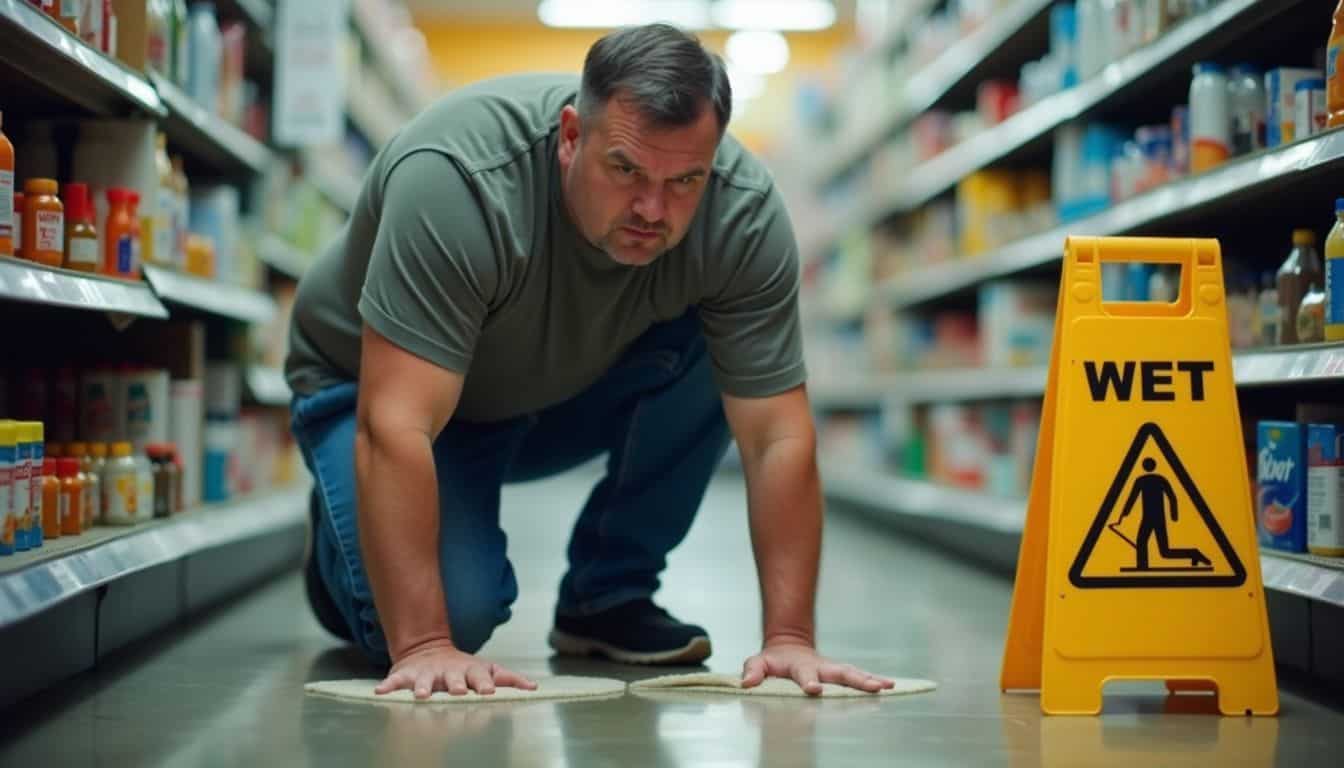
After a store injury, what you don’t do matters as much as what you do. Avoid these common mistakes to protect your rights and potential claim. Want to know more? Keep reading!
Refrain from Claiming You Are Uninjured
Don’t rush to say you’re okay after a store accident. It’s natural to want to brush it off, but this can hurt your case later. I once told a store manager I was fine after slipping, only to wake up sore the next day.
My quick words made it harder to get help with my medical bills. Always take time to check yourself for injuries before speaking up.
Saying you’re not hurt can come back to bite you. Insurance companies love to use these statements against you. They’ll argue that if you said you were fine, you must not be injured.
This can make it tough to get fair compensation for your injuries. It’s best to stay quiet about your condition and see a doctor first. Let the pros figure out if you’re truly okay or not.
Do Not Discuss the Incident with Insurance Adjusters
Insurance adjusters may seem friendly, but they’re not on your side. They work for the store and want to pay you less. Don’t talk to them about your accident. If they call, tell them to look at the store’s report.
It’s smart to get a lawyer to handle these chats. They know the tricks adjusters use to cut your payout.
I once made the mistake of chatting with an adjuster after a fall. Big error! They twisted my words and tried to blame me. Now I know better. Let your lawyer do the talking. They’ll protect your rights and fight for fair pay.
Next, let’s look at the types of compensation you might get for your injuries.
Compensation and Claims Process
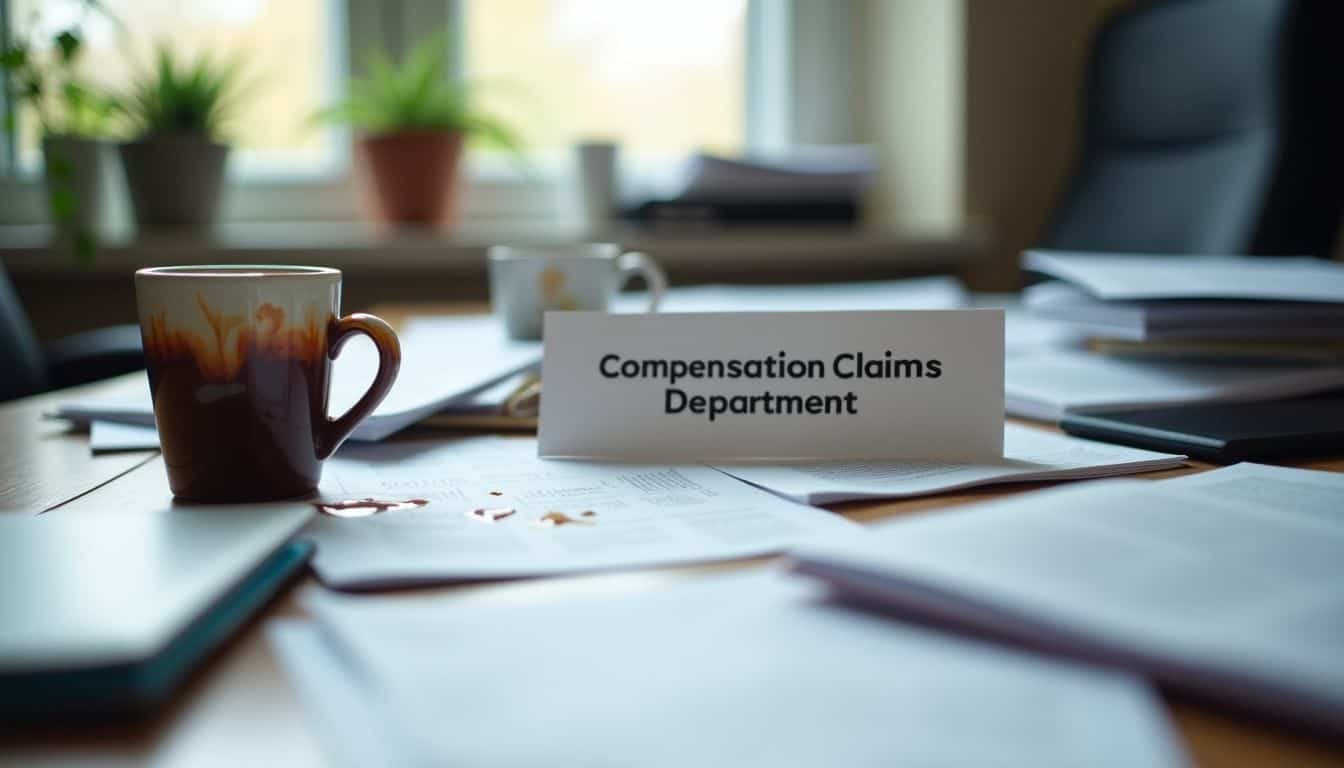
After a store injury, you might get money for your troubles. Want to know more? Keep reading!
Explore Types of Injury Compensation
Injury compensation comes in different forms. Medical costs cover your doctor visits and treatments. Lost wages make up for missed work time. Pain and suffering pay for your physical and mental distress.
These types aim to make you whole after an accident. Some cases may involve punitive damages too. These punish stores for very bad behavior. After a slip and fall, you might qualify for one or more of these.
A lawyer can help figure out which apply to you.
Courts look at many factors when deciding compensation. They check how badly you got hurt. They look at your medical bills and lost income. Your age and overall health matter too. So does the store’s role in causing the accident.
Each case is unique. That’s why talking to a pro about your options is smart.
Learn about the Statute of Limitations
After exploring injury compensation, it’s crucial to grasp time limits for legal action. Each state sets its own rules. In New York, you have three years from the accident date to file a claim.
New Jersey gives you two years, with special rules for minors. These deadlines are firm. Missing them can result in case dismissal and loss of your right to seek damages.
Sometimes, injuries aren’t clear right away. The “discovery of harm” rule may extend your filing window. But don’t count on this. Act fast to protect your rights. Fraud by the store could also affect these time limits.
If you’re hurt in a shop, talk to a lawyer soon. They’ll help you meet all deadlines and build a strong case.
People Also Ask
What should I do right after getting hurt in a store?
First, take a deep breath. Your health comes first. If you’re badly hurt, ask someone to call 911. If not, tell a store worker or manager what happened. Get their name and contact info. Take photos of where you fell and what caused it. This helps if you need to prove the store was careless later.
Do I need to see a doctor even if I feel okay?
Yes, you should. Some injuries, like brain injuries, don’t show up right away. Go to the emergency room or your doctor for a check-up. Keep all your medical records and bills. These will be important if you decide to file a personal injury claim against the store.
Can I sue the store for my injuries?
It depends. If the store didn’t take reasonable care to keep you safe, you might have a case. This is called premises liability. For example, if they left a spill on the floor or had a broken step they knew about, that’s negligence. Talk to a personal injury attorney to see if you have a strong case.
How long do I have to file a lawsuit?
The clock starts ticking the day you get hurt. In Florida, you usually have four years to file a personal injury lawsuit. But don’t wait that long. Evidence can disappear, and witnesses might forget what happened. It’s best to talk to a lawyer soon after your accident.
What kind of compensation can I get?
If you win your case, you could get money for medical bills, lost wages, and pain and suffering. These are called compensatory damages. In rare cases, you might get punitive damages if the store was really careless. Remember, every case is different. A good lawyer can help you understand what your case might be worth.
Do I need a lawyer, or can I handle this on my own?
You can try to handle it yourself, but it’s risky. Store owners and their insurance companies have teams of lawyers. They’ll try to pay you as little as possible. A personal injury attorney knows how to deal with them. Most work on contingency, which means you don’t pay unless you win. They can help with everything from gathering evidence to negotiating with insurers. It’s usually worth at least talking to a lawyer about your options.
References
https://www.blockotoole.com/articles/store-injury-next-steps/
https://www.raphaelsonlaw.com/legal-insights/what-to-do-injured-store
https://www.casebarnettlaw.com/blog/heres-what-happens-if-you-get-injured-in-a-store.cfm
https://www.ncbi.nlm.nih.gov/books/NBK236580/
https://bencrump.com/faqs/is-a-store-liable-for-a-customer-injury/
https://dcmdlaw.com/understanding-maryland-statute-of-limitations-in-personal-injury-cases/
